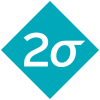Flipped learning with Jupyter: Experiences, best practices, and supporting research
Who is this presentation for?
- Educators, trainers, and lifelong learners
Prerequisite knowledge
- Those who use or want to use Jupyter for teaching, whether at a traditional institution of higher learning, a corporate learning organization, or a new-wave reskilling outfit
What you'll learn
- Explore the pedagogical underpinnings of active learning using technology such as Jupyter, a coherent set of good practices for creating learning experiences with Jupyter, and tips for further reading
Description
Jupyter has exploded in popularity, in not only data science but also education. As seen in the Gallery of Interesting Jupyter Notebooks, myriad notebooks are shared with the purpose of teaching some topic or technique. Used within a formal course, Jupyter combined with a pedagogical practice called “flipped learning” can lead to engaging and highly effective learning experiences.
In flipped learning, students encounter new course material before class meetings through structured activities, rather than during class via passive lecturing. This helps students learn how to learn on their own, and it frees up class time to focus on creative applications of the basic material. Typically, students in flipped learning environments encounter new material by watching lectures that are recorded and posted online. However, recent research has suggested that a more effective practice is to have students interact with a “tangible interface” that gives them hands-on experience with those new concepts.
Lorena Barba and Robert Talbert offer an overview of flipped learning and the research that supports its effectiveness, discuss the use of Jupyter notebooks as a “tangible interface” for new material in a flipped course, and share case studies from their own courses in which Jupyter was used to build an active, engaging, and academically effective flipped learning environment. Along the way, they detail design principles that leverage the best features of Jupyter to produce a high-functioning active learning environment and explore the role of Jupyter-based course materials in the rapidly expanding world of open educational resources (OER).

Lorena Barba
George Washington University
Lorena A. Barba is associate professor of mechanical and aerospace engineering at the George Washington University in Washington, DC. In addition to her research in computational science and engineering, she is interested in education technology, social learning, and massively open online courses as well as innovations in STEM education, including flipped classrooms and other forms of blended learning. Lorena is a recipient of the 2016 Leamer-Rosenthal Award for Open Social Sciences and was recognized with an honorable mention at the Open Education Consortium’s 2017 Open Education Awards for Excellence.

Robert Talbert
Grand Valley State University
Robert Talbert is a professor of mathematics at Grand Valley State University. Robert is an early adopter, proponent, and thought leader on flipped learning in higher education, and his flipped learning implementations include 10 different university mathematics and computer science courses. He is the author of Flipped Learning: A Guide for Higher Education Faculty; he has also written articles, book chapters, and blog posts and given workshops and presentations on flipped learning to audiences in colleges across the US and abroad.
Comments on this page are now closed.
Sponsorship Opportunities
For exhibition and sponsorship opportunities, email jupytersponsorships@oreilly.com
Partner Opportunities
For information on trade opportunities with JupyterCon, email partners@oreilly.com
Contact Us
View a complete list of JupyterCon contacts
©2018, O'Reilly Media, Inc. • (800) 889-8969 or (707) 827-7019 • Monday-Friday 7:30am-5pm PT • All trademarks and registered trademarks appearing on oreilly.com are the property of their respective owners. • confreg@oreilly.com










Comments
I’m so looking forward to sharing our joint experiences in this session! Robert and I have been interacting on Twitter for years, but we met IRL for the first time when he gave a faculty workshop on flipped learning at GW last Fall. This is the first time we work together and I’m thrilled :–D